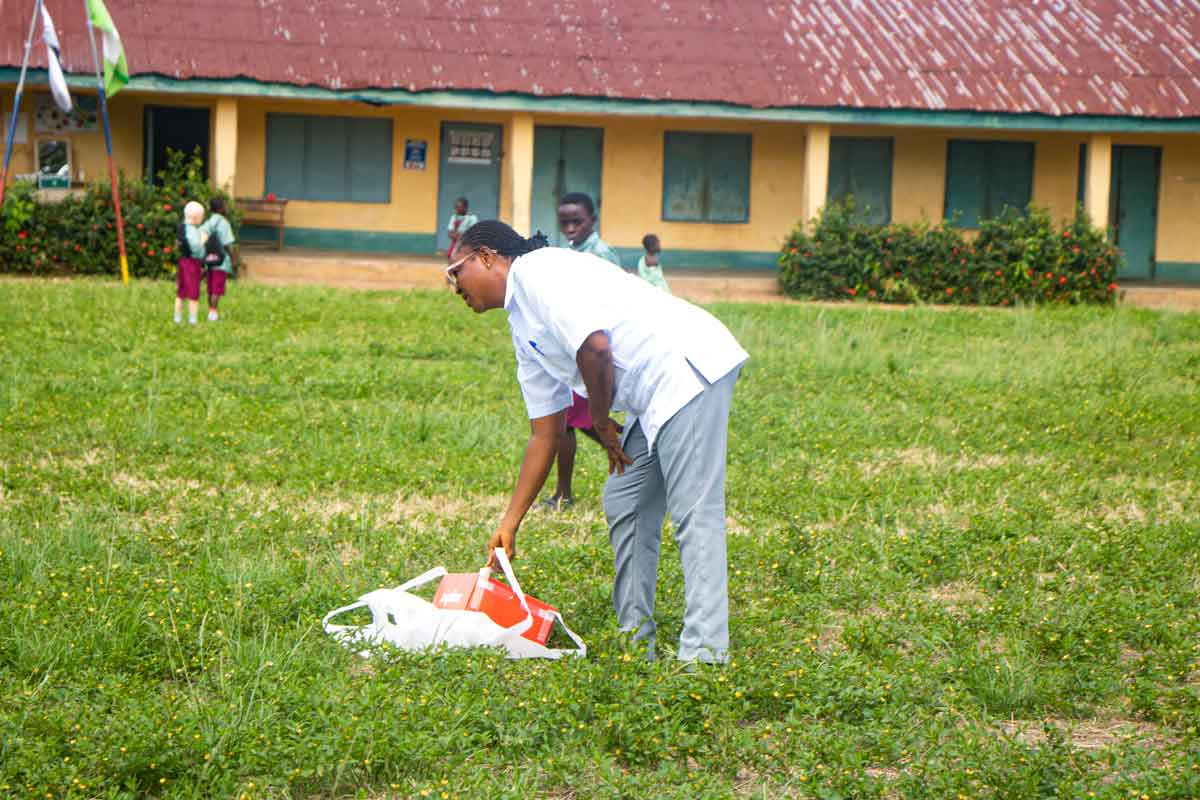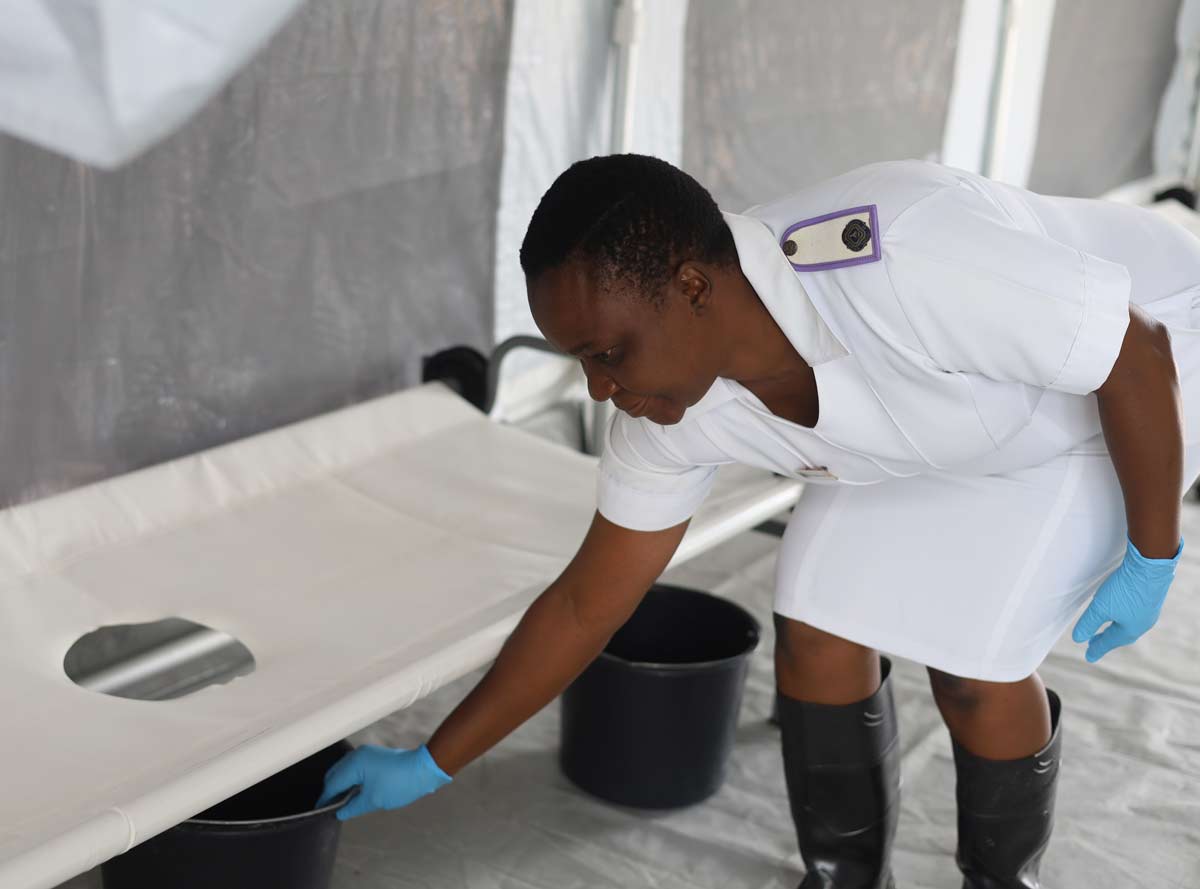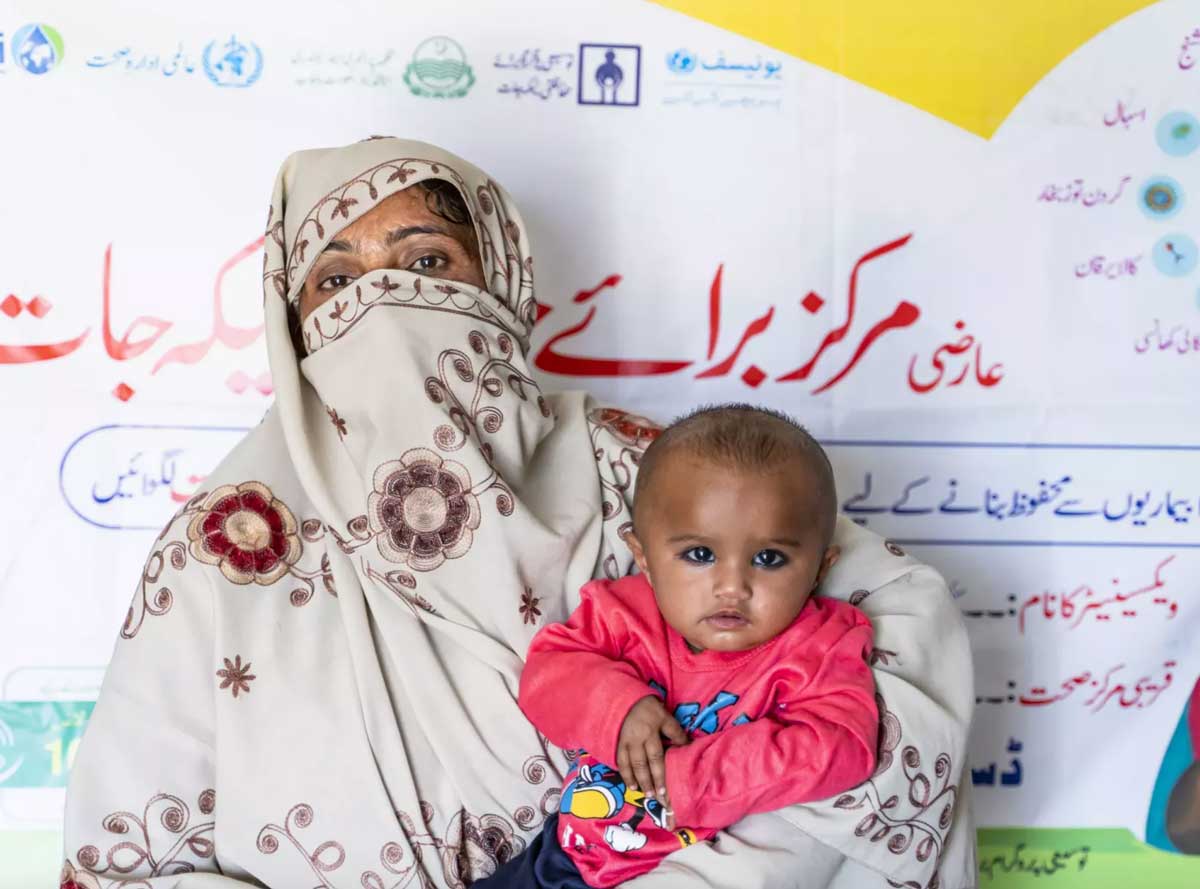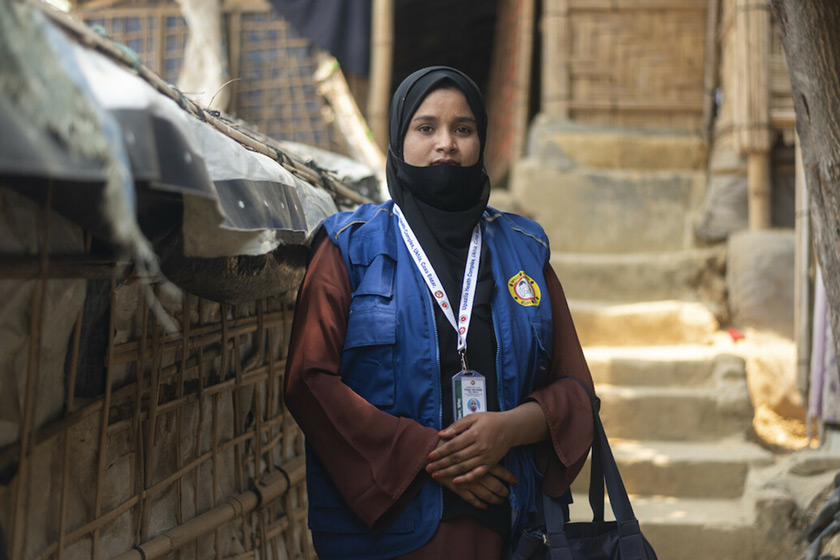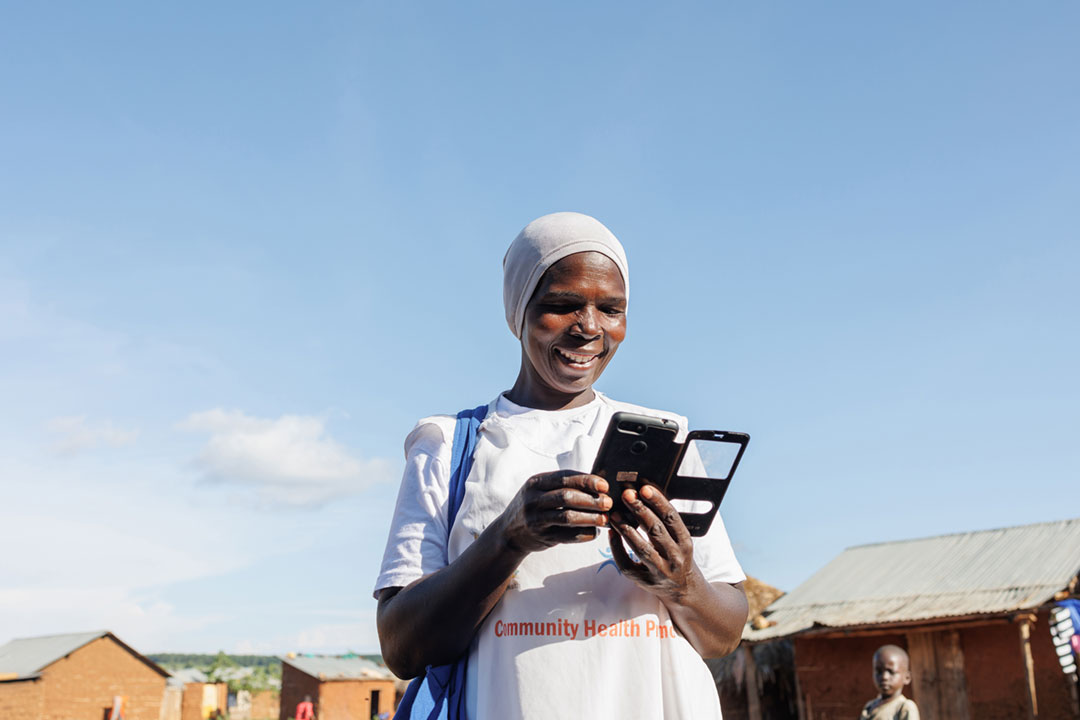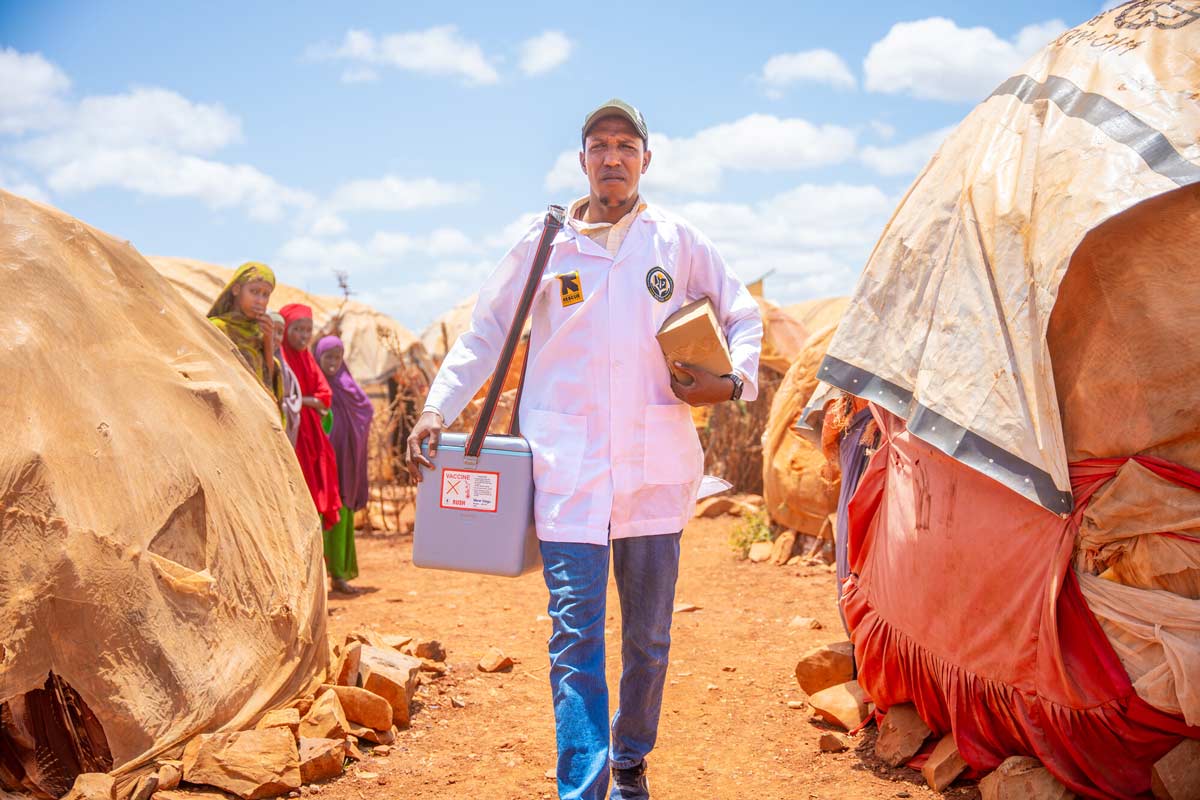Health in a heating world
Reducing emissions is an urgent imperative. So is strengthening health systems in the Global South.
- 17 October 2024
- 6 min read
- by Ian Jones , Charlotte Mbuh
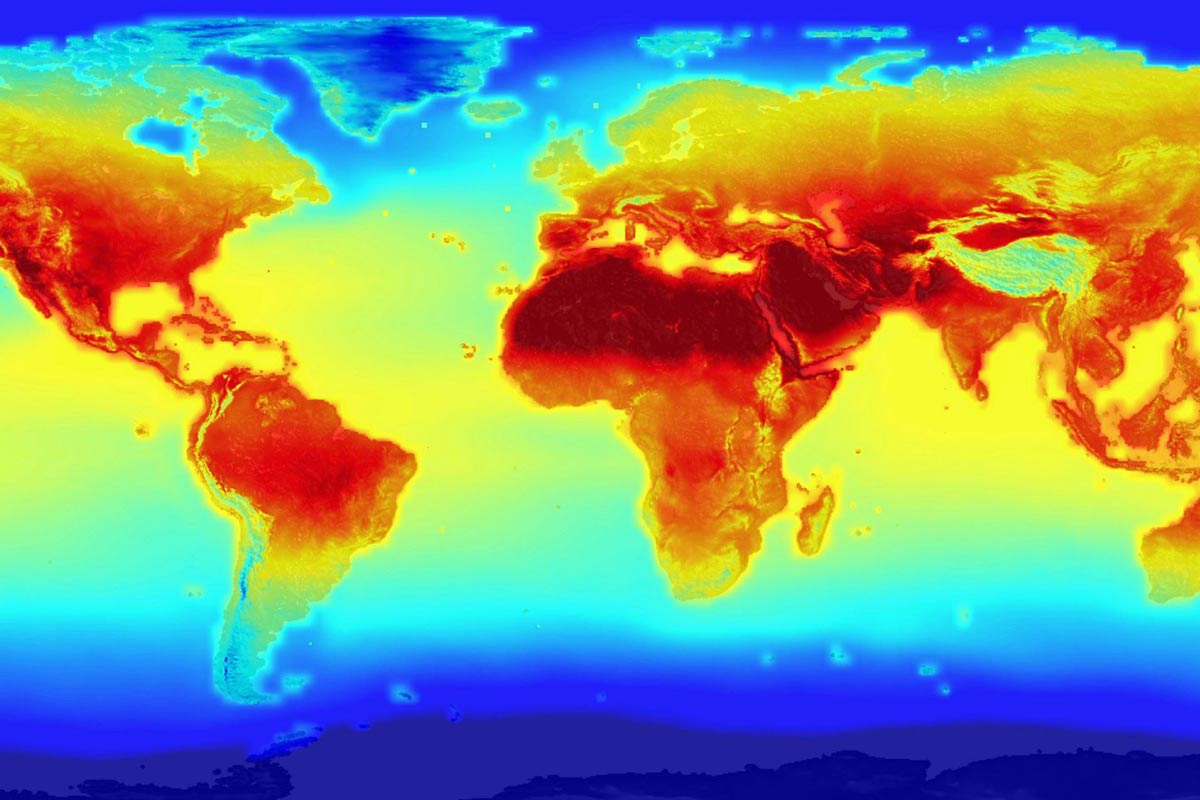
Heat records are being broken with alarming regularity. By the end of July 2024, 15 national heat records had been broken, with the mercury hitting 44.6°C in Ghana, 48°C in Chad and 50.9°C in Egypt.
Not surprisingly, these alarming statistics had led to an intensification of calls to cut greenhouse gas emissions. But the prospect of limiting global temperature rises to 1.5°C above pre-industrial levels seems more remote than ever.
The Geneva Learning Foundation (TGLF), a Swiss non-profit, is facilitating a new peer learning programme for frontline health workers from the Global South, in which they can learn from each other about the changing climate they are seeing, and how that is affecting the health of their communities. Their contributions paint a vivid picture of how communities are going about enduring higher temperatures, changing seasonal weather patterns and more extreme weather events.
Climate-linked weather effects are having a serious impact on multiple aspects of public health. Beyond the direct dangers of heat stress and extreme weather events, climate change is driving increases in water-borne and vector-borne infectious diseases, spurring rates of hunger and malnutrition due to impacts on farming, and contributing to stress and mental health disorders through excessive heat, disrupted sleep, economic hardships and social disruption.
At TGLF’s Teach to Reach 11 on 5–6 December 2024, climate change and health will again be a major focus. Experiences shared ahead of this event are already offering insight into the impacts that climate change is having on people in climate-vulnerable countries.
“For the past three months, we have been experiencing torrential rains in Burundi in general and especially in the plains of Bujumbura, which has led to landslides in the mountains making certain roads impassable, damaging crops and others. The floods wash away the fields in the valleys and, worse still, homes are made uninhabitable because of the floods in Bujumbura, precisely in Gatumba, along Lake Tanganyika. The consequences are numerous: the population has had to flee and the homeless are victims of mosquito bites (malaria), lack of drinking water (cholera, and others), famine, etc.”
Dr Niyonkuru Fabrice
Physician, Ministry of Health, Muramvya District Hospital, Burundi
It is also clear that climate change impacts can have profound indirect effects on communities, with often unanticipated consequences for health.
“Last year, Malawi experienced one of the most dreadful natural disasters, Cyclone Freddy. This cyclone destroyed people’s settlements, businesses and even claimed the lives of many people. Not spared during the cyclone were key populations which include female sex workers. Many female sex workers found themselves scrambling for customers in order to earn a little money for their upkeep. This made other female sex workers resort to giving in to unprotected sex to make money. This had led to a surge in sexually transmitted infections among female sex workers.”
Phillip King
HIV/Aids field officer, NGO, Zomba District, Malawi
“In Mathare, the extreme weather conditions are highly affecting the health of residents. When the drought hit East Africa countries sometime last year, there was limited food growth as plants were not getting enough water to circulate nutrients, and therefore most of the crops withered before maturity. This led to low harvests, and hence increased food prices. Given that most Mathare residents live under a dollar a day, most of them couldn’t afford the highly priced food, and therefore resorted to other options, including growing their own crops along the highly polluted Mathare river, collecting leftovers in dumpsites, and also reducing their meals to once daily.”
Elizabeth Akinyi Oduor
Community health worker, Ministry of Health, Mathare, Nairobi, Kenya
Health worker contributions also highlighted how climate effects are impacting both the ability of health workers to deliver health services, and the capacity of populations to access them. Sometimes, that’s because floods or landslides have made roads impassable; other times, because household finances make health care an unaffordable luxury.
“Climate change is a serious problem in my community during raining season. The dam usually overflows across the road, making it difficult for us to cross to access health care services. During that time the only means is crossing with a canoe and there is a fee attached, which makes it a kind of problem for the vulnerable and even to us, the health care providers – imagine referring pregnant women during labour.”
Mbabila Alice
Midwife, Ministry of Health, Bongo District, Ghana
Have you read?
“Bad harvests due to poor distribution of rainfall (low rainfall, late rainfall, pockets of drought during the growing season and stopping while the crops still need it). The population does not harvest enough to meet its needs and there is a decline in purchasing power, an increase in poverty, and a lack of resources available for health care for family members.”
Dr Djibo Aichatou Alfari
Public Health Physician, Ministry of Health, Niamey, Niger
Several health workers expressed concerns about whether health systems could cope.
“Our health care system is overstretched and we don’t know where we are headed to if the drought continues this year.”
Habinda Mutaka Douglas
Public health specialist, Ministry of Health, Chambishi, Kalulushi District, Zambia
Respondents are also sharing steps they have been taking to address climate change, individually or with communities.
“We can take small steps and be part of the required change. As an individual, I have taken a step to join an organisation that strives to plant as many trees as possible within the region where I live and work. The organisation also provides education to members on the types of crops to plant during different seasons in order to reduce losses of food due to climatic changes.”
Susan Okonji Adina
Counselling Psychologist, Bungoma County, Kenya
In some cases, the actions taken have broader public health goals.
“Our team is working on sensitisation of the people on the preventive measures especially building a house with larger windows, planting trees, cleaning drains and the methods of feeding children. We also sensitised them on the need to build good toilet facilities and stop open defecation.”
Rebecca Bello
Public Health Medical Laboratory Technologist, Dobi Community, Gwagwalada Area Council, Nigeria
For the most part, dealing with the harmful effects of climate change on health does not need some new miracle solution – just stronger, more resilient primary health care and public health systems, built around community needs and priorities. These have been a long-standing need – but this need has been heightened rather than diminished by the stressors created by climate change.
Learn more
Listen to the Teach to Reach podcast:
- in English on RSS , Apple, Spotify, YouTube, or Amazon podcast services.
- En français sur les services de podcast par RSS, Apple, Spotify, YouTube, ou Amazon.
Are you a health professional? Join the Geneva Learning Foundation’s peer learning programme on climate change and health:
- In English: From community to planet: Health professionals on the frontlines of climate change https://www.learning.foundation/climate
- En français: De la communauté à la planète: Professionnels de la santé sur le front du climat https://www.learning.foundation/climate-fr
Is your organisation interested in learning from health workers? Learn more about becoming a Teach to Reach partner.
More from Ian Jones
Recommended for you



